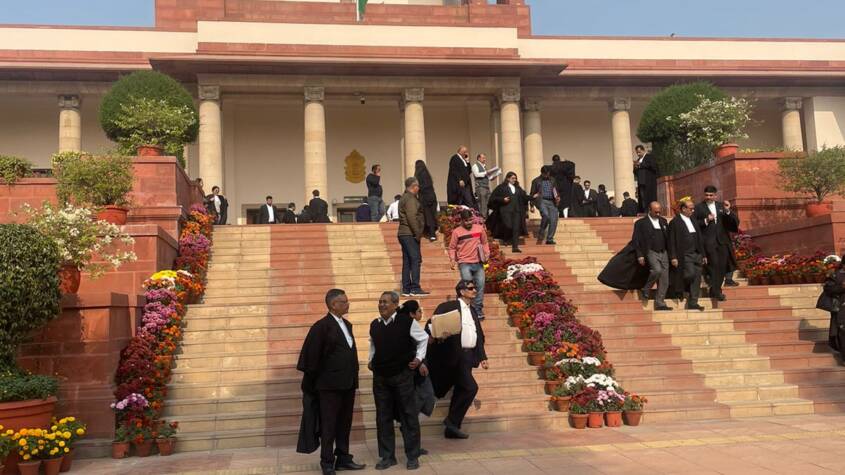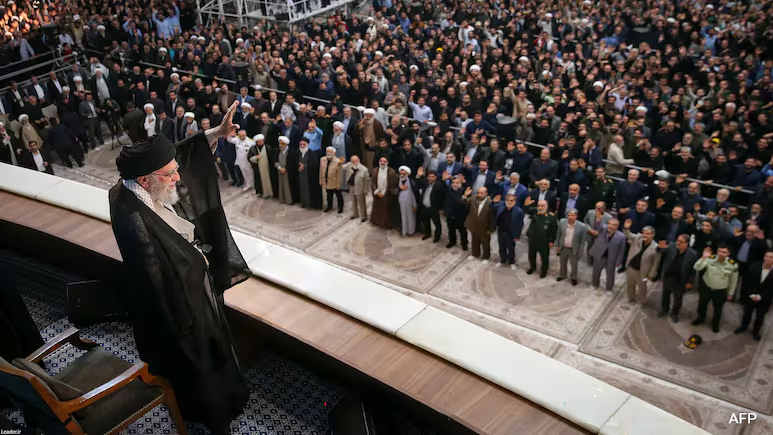Fight against caste-based discrimination not a battle to be won overnight: SC
New Delhi: The Supreme Court on Thursday said the fight against caste-based discrimination is not a battle that can be won overnight and it requires sustained effort, dedication, and the willingness to confront and challenge societal norms that perpetuate inequality.The top court observed that the Constitution stands as a testament to the fight against historical injustices, and said the pervasive influence of caste necessitates continuous efforts to ensure equality and justice for all citizens.
The observations came in the judgement in which the top court set aside caste-based discriminatory provisions of prison manuals of around 11 states while deprecating the practice of distribution of work and segregation of prisoners in separate wards on basis of their castes.A bench comprising Chief Justice D Y Chandrachud and Justices J B Pardiwala and Manoj Misra said the Constitution mandates the replacement of fundamental wrongs with fundamental rights.
Through its provisions, it displaced a centuries-old caste-based hierarchical social order that did not recognise the principle of individual equality, the bench said.”The fight against caste-based discrimination is not a battle that can be won overnight; it requires sustained effort, dedication, and the willingness to confront and challenge societal norms that perpetuate inequality.”When faced with practices of caste-based discrimination, this Court must take an active stand. In entertaining the current petition, this Court is making its contribution to the ongoing struggle to dismantle caste-based discrimination,” it said.
The bench said criminal laws in modern times must ensure that they do not deny equality before the law and the equal protection of laws.Criminal laws must not endorse colonial or pre-colonial philosophy, it said.”In a post-constitutional society, the law must take affirmative steps to achieve equal protection of law to all its citizens. Any discussion on the constitution must therefore take a conscious view of the lived realities of citizens. It requires evaluating how constitutional provisions translate into meaningful outcomes in their lives. We must discuss this aspect of the Indian Constitution further, before we examine the impugned provisions,” the bench said.
The top court said constitution mandates the replacement of fundamental wrongs with fundamental rights.”It negated the ideals of social hierarchy. The constitution is the embodiment of the aspirations of the millions of caste-oppressed communities, which hoped for a better future in independent India. To summarise, the constitution, by its very existence, was a social revolutionary statement,” the bench said.It said the constitution envisions a society where there is no room for anyone to feel superior to another citizen.
The constitution complements the basic principles of constitutionalism with provisions designed specifically to address India’s social problems, the apex court said.”The constitution thus stands as a testament to the fight against historical injustices and for the establishment of an egalitarian social order. It aims to prevent caste-based discrimination. This commitment is not limited to preventing discriminatory actions by the State alone.
“It extends to the actions of citizens and private entities as well. It empowers the State to enact appropriate legislation or take executive measures to tackle caste-based discrimination,” the bench said.”At the same time, it mandates the decision-makers to take every step to end discrimination in Indian society. The pervasive influence of caste necessitates continuous efforts to ensure equality and justice for all citizens. The manifestations of caste are too numerous to exhaustively enumerate,” the bench added.
Trump warns Iran to agree to nuclear deal before “even more brutal” attacks
US President Donald Trump has warned Iran to agree to a nuclear deal “before there is noth…








